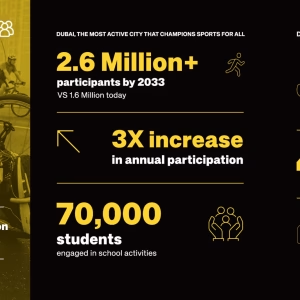Across the golden deserts of the United Arab Emirates, a quiet but powerful shift is taking root. In the same land where date palms once defined survival and prosperity, a new generation is breathing life back into an ancient tradition. Date farming — once viewed as a dying craft — is experiencing a vibrant revival, led by young Emiratis choosing to trade desk jobs for desert fields.
From the fertile oasis towns of Al Ain and Liwa to the cool valleys of Fujairah, young Farmers are returning to their ancestral lands, determined to revive the heritage of palm cultivation. These modern cultivators are not only cultivating fruit but also reconnecting with culture, sustainability, and identity — redefining what it means to be young, Emirati, and rooted in tradition.
A Return to Ancestral Land
In decades past, farming was largely left to older generations or migrant laborers. As cities expanded and economies modernized, many young Emiratis grew up disconnected from the agricultural way of life that shaped their grandparents. But the tide is changing.

“There’s something deeply spiritual about returning to the land your grandfather once tended,” says Saeed Al Mazrouei, a 28-year-old from Al Dhaid who left a job in logistics to take over his family’s date farm. “It’s about more than just growing fruit — it’s about growing pride.”
For Saeed and others like him, farming offers more than a livelihood. It offers a way to reconnect with their roots and revive practices that have sustained desert communities for centuries.

When Passion Meets Profession
What began as a weekend hobby for some has evolved into a full-time commitment for many. Some young farmers were initially drawn in by the aesthetics of farming — the serenity of palm groves, the satisfaction of a well-tended harvest. But as they dug deeper, many discovered an unexpected passion for agriculture and the unique challenges it offers.
For 30-year-old Fatima Al Hammadi, what started with growing a few date palms in her backyard turned into a business. After experimenting with different organic techniques, she launched a line of handcrafted date-based products ranging from spreads to gourmet gift boxes. Her products quickly found popularity in local markets and online platforms, appealing to a generation of consumers who value authenticity and local craftsmanship.
“Our dates aren’t just food — they’re stories,” she says. “Each palm has a history, each harvest a memory.”
Sustainability at the Core
The revival of date farming arrives at a time when the UAE is focusing heavily on food security and sustainable development. As the climate crisis challenges global agriculture, the hardy date palm — naturally suited for arid environments — offers a sustainable solution. These trees require less water than other crops and can thrive in the UAE’s desert conditions.
Young farmers are increasingly adopting sustainable farming methods. Techniques like drip irrigation, organic fertilization, and solar-powered water pumps are becoming more common. Some even use mobile apps and drones to monitor soil health and pest control.

“We’re not just going back to the old ways — we’re improving on them,” says Khalid Al Ameri, a 26-year-old agri-tech enthusiast who manages a modern date farm in the outskirts of Abu Dhabi. “It’s about blending tradition with innovation to create something lasting.”
By aligning their practices with the UAE’s sustainability goals, these farmers are not only preserving the environment but also proving that traditional farming can be part of a modern, green economy.
Community Over Competition
Unlike in many other industries, young date farmers often operate with a spirit of community rather than competition. Knowledge sharing is common, with farmers frequently collaborating through social media groups, in-person workshops, and informal farm visits.
Several grassroots initiatives have sprung up where experienced growers mentor newcomers, helping them avoid early pitfalls and build confidence. These collaborative spaces are especially important for women farmers, who often face additional challenges in accessing land and funding.
This sense of community also extends to consumers. Many farms now offer agritourism experiences — date-picking events, cooking classes using traditional Emirati ingredients, and tours that teach visitors about the cultural significance of the date palm. These experiences create a deeper appreciation for farming and bring the public closer to the people growing their food.
Farming in the Age of Social Media
Social media is proving to be a powerful tool in transforming the image of farming. Platforms like Instagram and TikTok are filled with young Emiratis documenting their agricultural journeys — from planting and pollinating to harvesting and packing.
Glossy photos of date clusters under the desert sun, time-lapse videos of sprouting palm trees, and behind-the-scenes looks at the farming lifestyle have turned once-hidden traditions into viral content.
This digital visibility not only helps promote farms and products but also reshapes public perceptions. Farming is no longer seen as laborious or old-fashioned — it’s being rebranded as purposeful, stylish, and empowering.
“We’re showing people that farming is a way to be cool, creative, and connected to something bigger than yourself,” says Rasha Al Suwaidi, a 25-year-old farmer-influencer from Sharjah with over 50,000 followers.
Challenges Still Persist
Despite the growing enthusiasm, the journey isn’t without obstacles. Young farmers face challenges such as limited access to capital, rising land costs, and a lack of formal education in modern agricultural science.
Many also struggle to secure long-term support, especially when transitioning from small-scale farming to full-fledged business operations. There are calls for increased government support — including startup grants, training programs, and better infrastructure for farm-to-market logistics.
Additionally, the physical demands of date farming — which includes climbing trees for pollination and manually harvesting fruit — remain a deterrent for some. However, mechanized tools and community labor systems are beginning to lighten the load.
A Cultural Renaissance
Beyond economics and environment, this revival is deeply cultural. In Emirati society, dates symbolize hospitality, resilience, and life itself. They are served at weddings, Ramadan meals, and daily gatherings, always presented with pride.
Farms are once again becoming sites of cultural transmission. Grandparents are teaching grandchildren how to prune a palm, harvest the ripest dates, and store them the traditional way. Oral histories and agricultural wisdom — once at risk of being forgotten — are being passed down and preserved.
Festivals celebrating the date harvest are seeing increased participation, with stalls run by young entrepreneurs showcasing everything from artisan date chocolates to skincare products infused with date seed oil. These events offer a glimpse into a future where tradition and entrepreneurship coexist.
Looking Forward
As the sun rises over a new generation of palm groves, the promise of Emirati date farming has never looked brighter. Driven by passion, purpose, and pride, young farmers are planting more than crops — they’re planting the seeds of a cultural and environmental renaissance.
They remind us that progress doesn’t always mean moving away from the past. Sometimes, the most innovative thing you can do is look back, kneel down, and tend to the roots.
Read More: How Animal Rescues Are Changing Perceptions of Pet Adoption in the UAE














